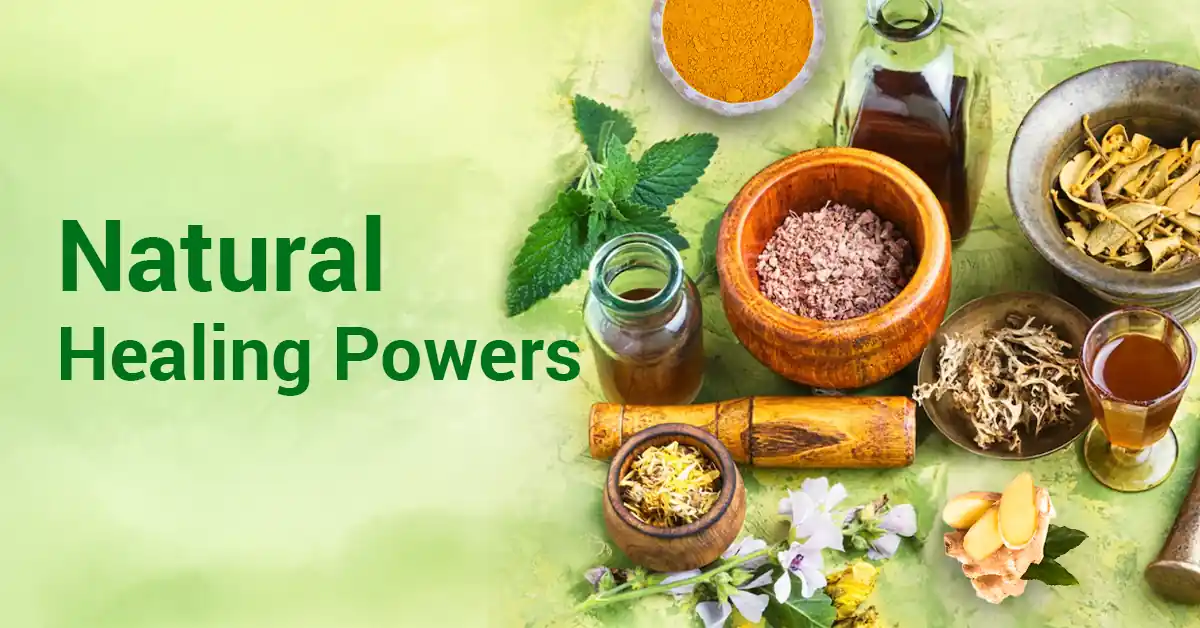In a world where modern medicine dominates the healthcare industry, it’s easy to overlook the power of herbal medicines and natural remedies. However, these traditional healing practices have been used for centuries, harnessing the inherent properties of plants to treat various ailments. Herbal medicine, with its emphasis on natural remedies, offers a holistic approach to health and has gained significant popularity in recent years. In this blog, we will delve into the remarkable healing potential of herbal medicines, exploring their health benefits and their efficacy in addressing common ailments. (Bent, S. and Ko, R., 2004.)
Understanding Herbal Medicine
Herbal medicine, also known as botanical medicine or phytotherapy, is a therapeutic practice that utilizes plant-based preparations to promote health and treat diseases. The use of medicinal plants dates back to ancient civilizations, where healers and traditional medicine practitioners relied on nature’s bounty to alleviate suffering. Today, herbal medicine continues to thrive as a complementary and alternative therapy, offering a gentle and sustainable approach to wellness. (Khan, M.S.A. and Ahmad, I., 2019)
The Science Behind Herbal Medicines
Herbal medicines derive their efficacy from the diverse chemical compounds present in plants. These compounds, such as alkaloids, flavonoids, terpenoids, and phenolic compounds, contribute to the therapeutic properties of medicinal herbs. Modern scientific research has focused on identifying and understanding these bioactive constituents, shedding light on the mechanisms of action of herbal remedies.
Health Benefits of Herbal Medicines
3.1 Immune System Support
These medicines are known for their immune-enhancing properties. Certain herbs, such as Echinacea, astragalus, and garlic, contain compounds that stimulate immune cell activity, helping the body fight off infections and diseases. These natural remedies can be particularly useful in preventing and managing common colds, flu, and respiratory tract infections.
3.2 Digestive Health
Digestive disorders, including indigestion, bloating, and constipation, can significantly impact our well-being. Herbal medicines offer gentle and effective solutions for maintaining digestive health. Ginger, peppermint, fennel, and chamomile are just a few examples of herbs that can alleviate digestive discomfort, promote healthy digestion, and soothe the gastrointestinal tract.
3.3 Stress Reduction and Mental Well-being
In today’s fast-paced world, stress and anxiety have become pervasive issues. These medicines provide natural alternatives for managing stress and promoting mental well-being. Apoptogenic herbs like ashwagandha, holy basil, and Rhodiola rosea help the body adapt to stress, support healthy cortisol levels, and enhance resilience. Additionally, herbs such as lavender, passionflower, and lemon balm possess calming properties that can aid in reducing anxiety and improving sleep quality.
3.4 Pain Management
Chronic pain conditions, such as arthritis and migraines, can significantly impact an individual’s quality of life. Herbal medicines offer non-addictive and natural alternatives for pain management. For example, turmeric contains curcumin, a compound with potent anti-inflammatory properties, which can help reduce pain and inflammation. Similarly, willow bark has been used for centuries as a natural remedy for pain relief.
Popular Herbal Remedies for Common Ailments
4.1 Echinacea for Immune Support
Echinacea is a famous spice known for its insusceptible helping properties. It has been used traditionally to prevent and shorten the duration of colds and flu. Research suggests that Echinacea enhances immune cell activity, increases the production of infection-fighting compounds, and reduces the severity of respiratory tract infections.
4.2 Ginger for Digestive Health
Ginger is a versatile herb widely recognized for its digestive benefits. It aids digestion by stimulating the production of digestive enzymes, reducing inflammation in the gut, and soothing an upset stomach. Ginger can be consumed in various forms, such as fresh ginger root, ginger tea, or capsules, making it a readily accessible natural remedy.
4.3 Ashwagandha for Stress Reduction
Ashwagandha, an apoptogenic herb used in Ayurvedic medicine, is renowned for its ability to combat stress and promote overall well-being. It helps regulate cortisol levels, supports adrenal gland function, and improves the body’s response to stress. Regular use of ashwagandha has been associated with reduced anxiety, improved cognitive function, and enhanced energy levels.
4.4 Turmeric for Inflammation and Pain Management
Turmeric, a vibrant yellow spice, contains curcumin, a powerful anti-inflammatory compound. Curcumin’s anti-inflammatory effects have been studied extensively and show promise in managing conditions such as arthritis, joint pain, and inflammatory bowel diseases. Incorporating turmeric into the diet or taking curcumin supplements can provide natural relief from chronic pain and inflammation.
Safety and Considerations
While herbal medicines offer numerous health benefits, it’s essential to exercise caution and make informed choices. It’s advisable to consult with a qualified healthcare professional or herbalist before starting any herbal remedy. This is especially important if you are taking prescription medications, have underlying health conditions, or are pregnant or breastfeeding. It’s crucial to ensure the quality, purity, and proper dosage of herbal products for optimal efficacy and safety. (Chan, T.Y., 1997.)
Integrating Herbal Medicine into Your Lifestyle
Incorporating herbal medicines into your daily routine can be a fulfilling and empowering experience. The following are a couple of tips to get everything rolling:
6.1 Research and Educate Yourself
Take the time to research and understand different herbs, their benefits, and potential interactions. Read reputable books, consult reliable sources, and consider seeking guidance from herbalists or naturopathic doctors.
6.2 Start Slowly and Observe
Introduce one herbal remedy at a time and pay attention to how your body responds. Keep a journal to track any changes in symptoms or overall well-being.
6.3 Embrace a Balanced Lifestyle
Remember that herbal medicines work best when complemented by a healthy lifestyle. Eat a balanced diet, engage in regular physical activity, get sufficient sleep, and manage stress through practices like meditation or yoga.
Conclusion
In conclusion, the power of herbal medicine and natural remedies for common ailments is truly remarkable. The extensive array of herbal medicines available to us showcases their effectiveness in promoting overall well-being and treating various health conditions. By harnessing the healing properties of plants, herbal medicine provides an alternative approach to conventional medicine, offering a multitude of health benefits.
Herbal medicine, with its deep-rooted history in different cultures around the world, has stood the test of time. The wisdom of ancient civilizations has been passed down through generations, revealing the incredible potential of natural remedies. Through careful extraction and preparation of herbs, we can access a wide range of therapeutic compounds that can alleviate common ailments.
The health benefits of herbal medicines are numerous and diverse. These natural remedies often possess anti-inflammatory, antioxidant, and antimicrobial properties, helping to combat infections, reduce inflammation, and support the body’s immune system. Additionally, herbal medicines can aid in relieving digestive issues, easing stress and anxiety, improving sleep quality, enhancing cognitive function, and promoting cardiovascular health. They provide a holistic approach to wellness, addressing not only the symptoms but also the underlying causes of various common ailments.
One of the significant advantages of herbal medicine is its gentle and low-risk nature. Unlike many synthetic medications, natural remedies tend to have fewer side effects and are generally well-tolerated by the body. This makes them a favorable choice for individuals seeking alternative treatment options or those looking to complement conventional therapies.
Moreover, the accessibility and affordability of herbal medicines make them an attractive option for a wide range of individuals. Many herbs used in traditional medicine can be grown in our own gardens or sourced from local markets, making them readily available to those interested in exploring natural remedies. While herbal medicine offers promising solutions, it is essential to approach their usage with knowledge and caution. Consulting with qualified practitioners, such as herbalists or naturopathic doctors, can provide valuable guidance on appropriate dosage, potential interactions with other medications, and contraindications for specific conditions.
Please note: The information provided in this blog is for educational purposes only and does not substitute professional medical advice. Consult a healthcare professional before starting any herbal remedies or discontinuing prescribed medications.
You Can Also Read: 20 Myths About Traditional Medicine-Busted




